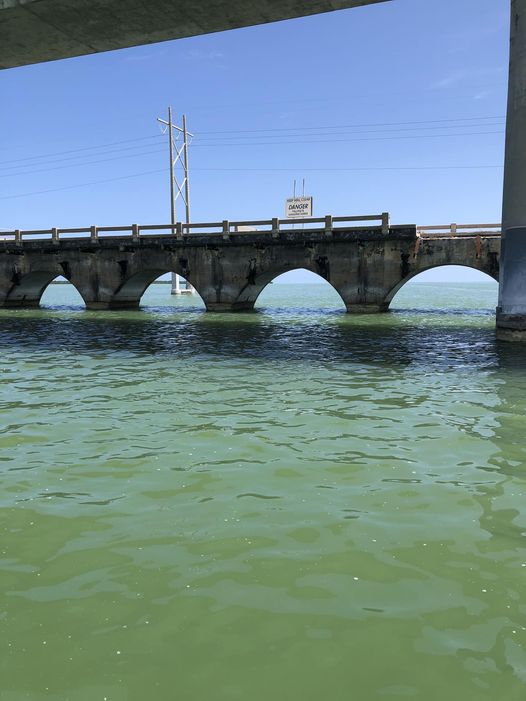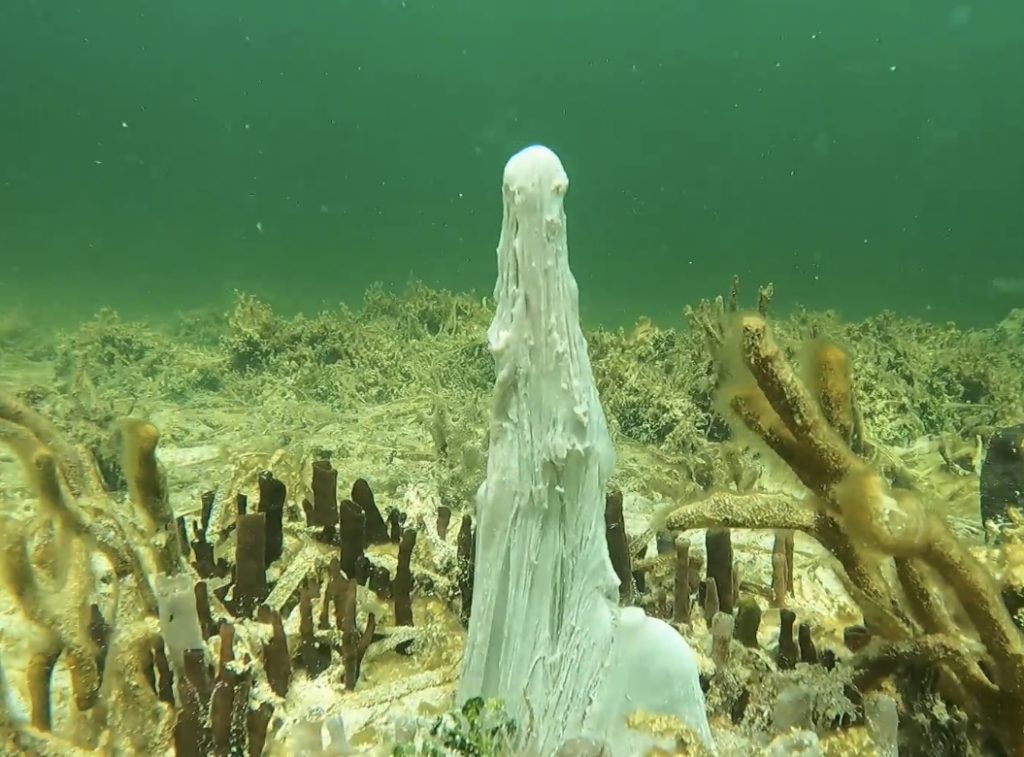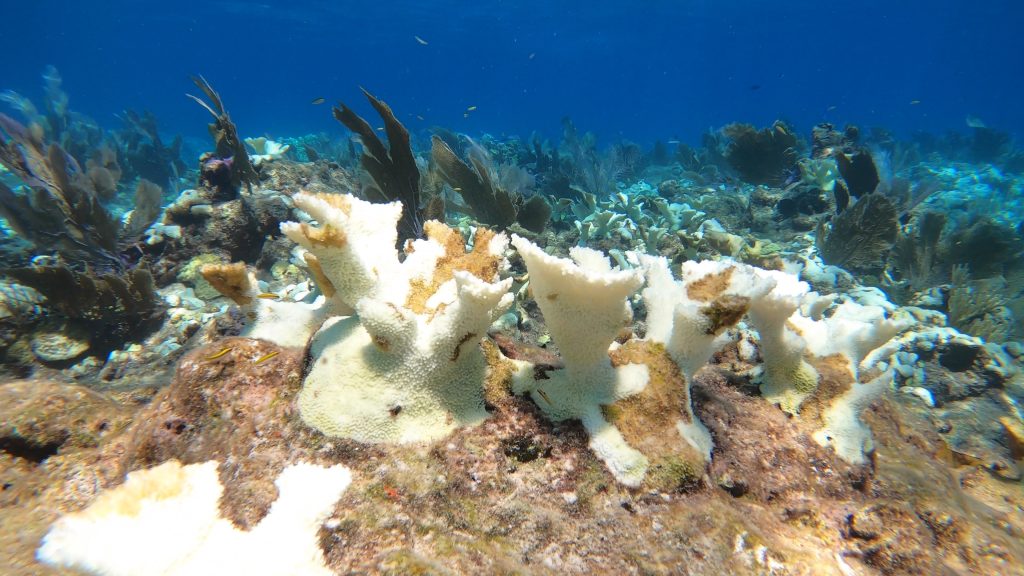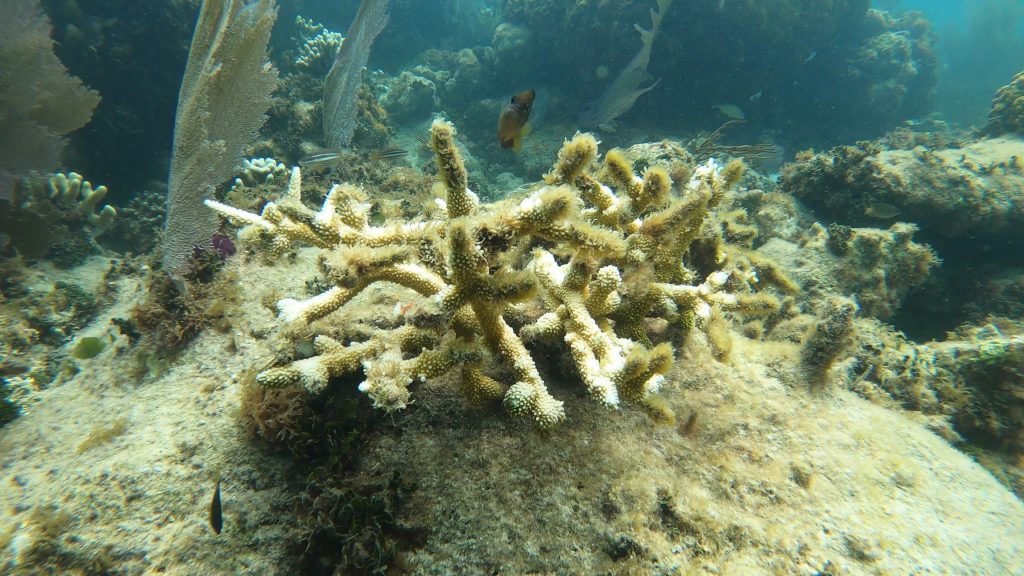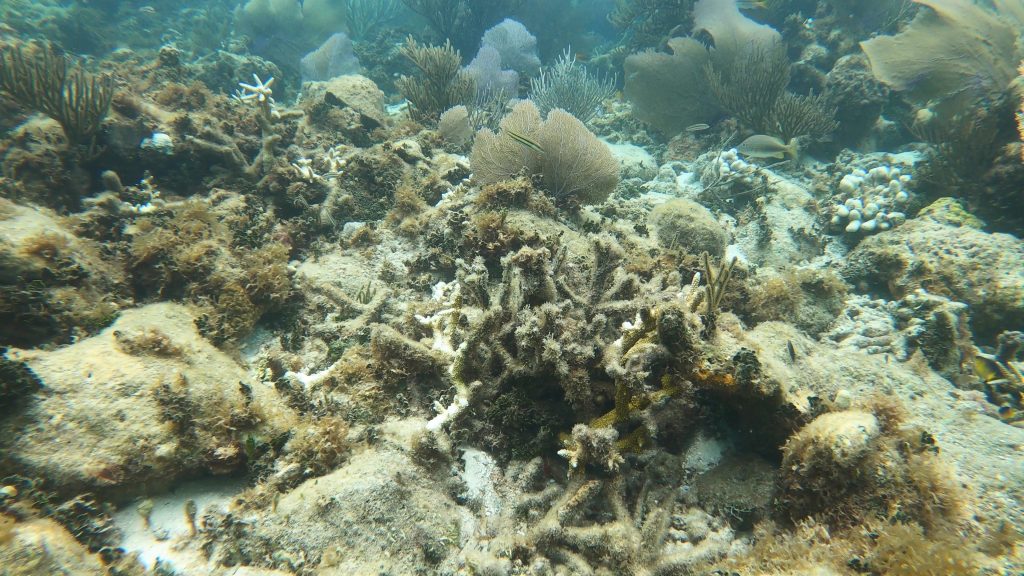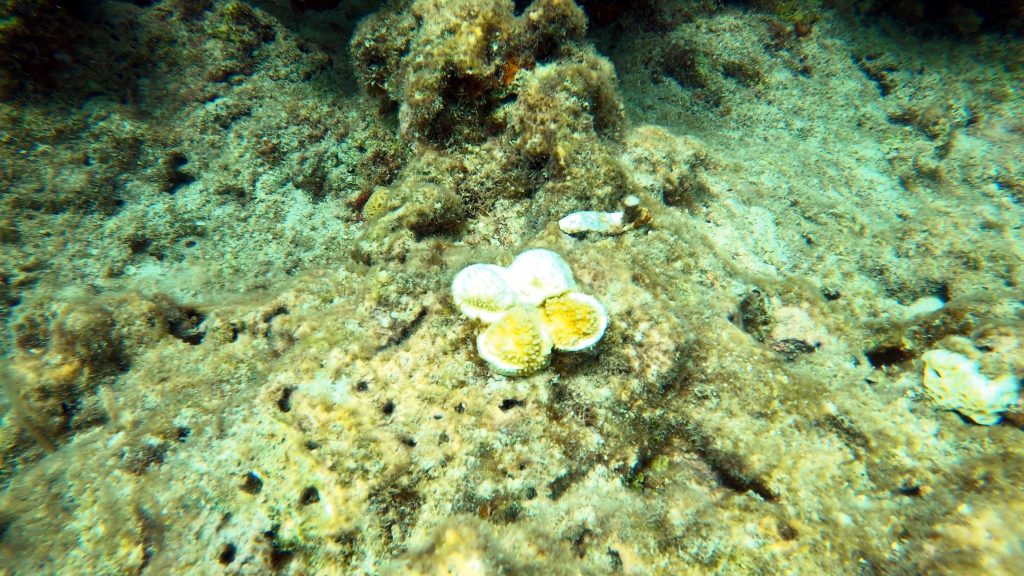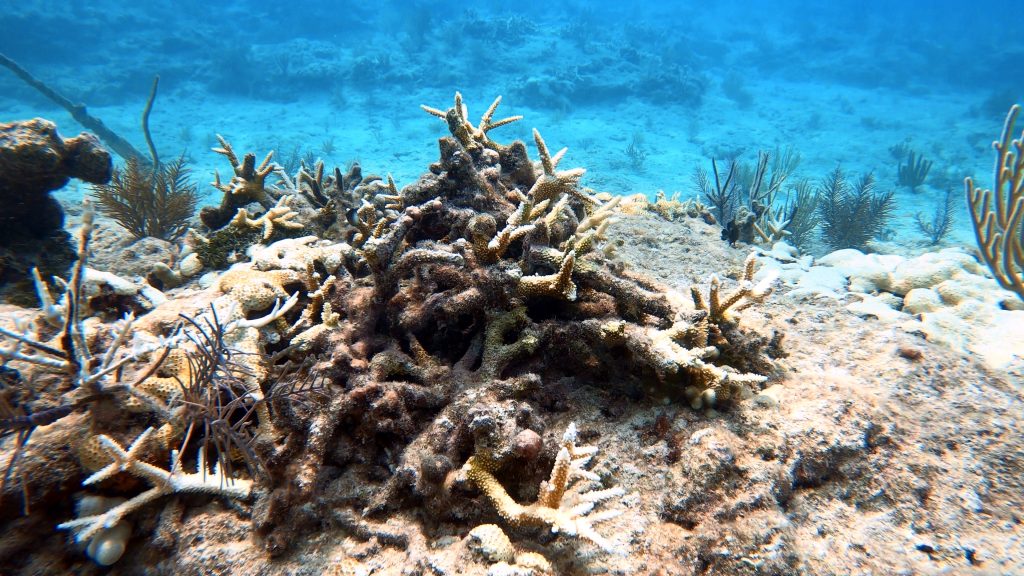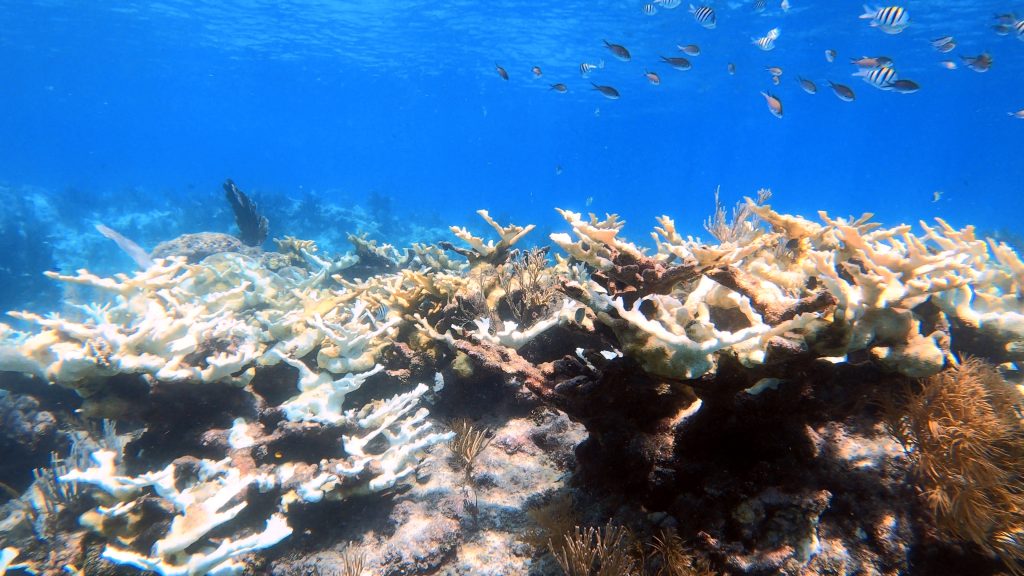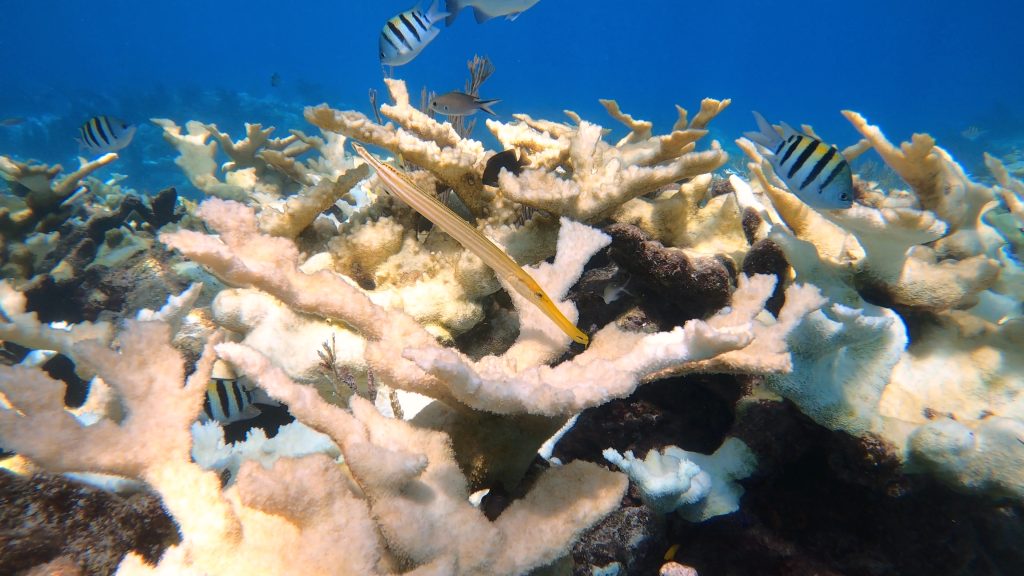
Reef Relief is a non-profit organization based out of Key West, established in 1987. Since our inception, Reef Relief has fought tooth and nail to protect Florida Keys Water Quality. We have led campaigns, programs, and events to educate and inspire change within our community and worldwide.
In the past 36 years, we’ve had a series of triumphs including but not limited to introducing and installing the first mooring buoys in what is today known as the Florida Keys National Marine Sanctuary, fighting against several attempts at channel widening and dredging for larger ships, establishing several campaigns regarding plastic and sunscreen usage, removing over 218,000 lbs of marine debris, hosting a successful camp program, and teaching over 58,000 students on marine conservation topics.
However, despite our many achievements there have been failures to the reef. The largest one is right before our eyes known as the Marine Heat Wave. Historic ocean temperatures have led to widespread coral bleaching throughout the Florida Barrier Reef. Historic sea surface temperatures reaching over 100°F in several areas when we aren’t even in the hottest time of the year is a tough pill to swallow. This hot water has led to widespread bleaching in several areas along the reef tract. Coral bleaching is caused when ocean temperatures become too hot or too cold causing the coral animal to become stressed and expel their symbiotic zooxanthellae. This zooxanthellae provides the coral with 90% of its food and its color. Without the zooxanthellae, we can see through the clear polyps and the white limestone skeleton underneath is exposed. The coral can only survive a short amount of time without their zooxanthellae.
How did we get here? There is no denying that our reefs have been suffering for decades. A myriad of challenges has steadily declined the health of our reef for years. Challenges such as mainland run off, improper sewage treatment, septic tanks, excess nutrients, sargassum influxes, lack of storm drain filtration, harmful algal blooms, marine debris, various coral diseases, sedimentation, and so much more have consistently impacted the Florida Barrier Reef. For decades, scientists have begged people to address water quality concerns before it’s too late. Reef Relief has worked with several of these scientists to support their voice and communicate their message. That is not to say that others haven’t tried. Hard worked efforts to restore the reef through planting, redirecting waters, and improving facilities have been valiant. But unfortunately, our corals were still dying.
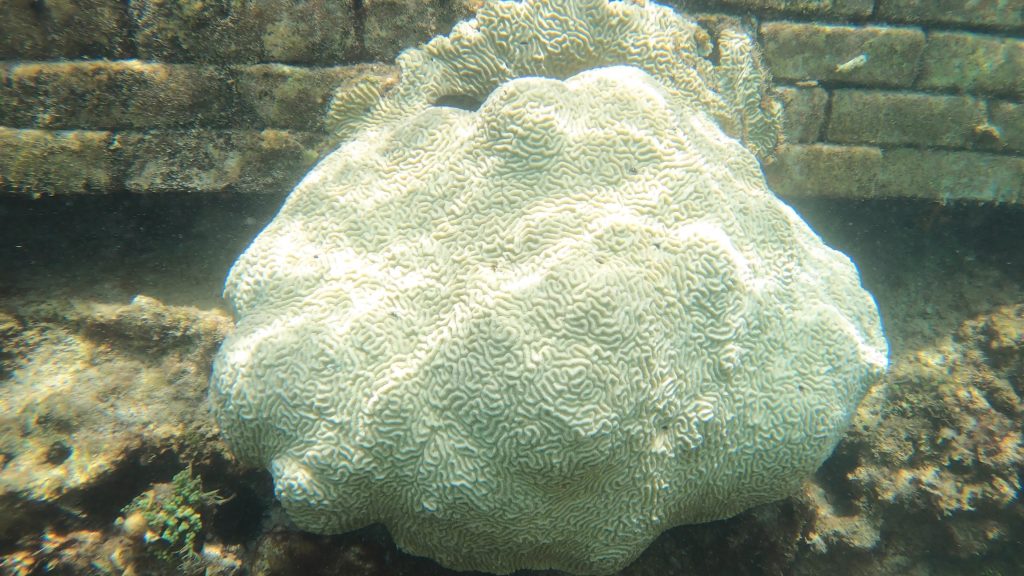
For those located in the Florida Keys, many may remember the beginning of summer. First, we had the impending stress of the massive Sargassum “blob” in the Atlantic Ocean. Then we experienced little to no visibility at popular dive sites. Green, dirty water from the Gulf of Mexico was present across the Florida Barrier Reef. All of this has been documented by local captains and dive crew in the popular Facebook group, “Keys Conditions”. Then, a massive fish kill with over 50 different reports to Bonefish & Tarpon Trust. Finally, with the Gulf Stream shifting closer, visibility on the reef cleared giving us phenomenal views of the reef, but there was just one problem, the coral had lost its color. Throughout this summer, we spent multiple days every week exploring the ecosystems with our Coral Camp for Kids program. With an age range of 6-12, even our campers recognized that things weren’t good. Our Reef Explorer Coral Campers conducted bleaching surveys out at the Dry Tortugas National Park, some even asked us “will we be the last camp group to see these corals here?”. As an organization dedicated to educating and empowering others to make a lasting difference, it is hard for us to answer questions like those given what we’ve seen and what we know. Now we are faced with even more green, discolored water, and a new algal bloom extending from Tampa Bay to the Lower Florida Keys.
The hot waters are a direct consequence of Climate Change, it’ll take many initiatives, policy initiatives, and beyond to prevent this from happening in the coming years. Although asking “what if” doesn’t change the past, it can impact the future. What if we had listened to those scientists. What if we had addressed concerns before they became a problem? What if we invested time and finances to improving our water quality issues? Would our corals have stood a chance against this warm water event? While it is hard to say with certainty, we believe that our corals were not given the best chance at survival and resiliency. Were they weakened so significantly that this was the final straw?
So where do we go from here? Here at Reef Relief, we will continue supporting the scientific community, and pushing for better water quality practices. We will continue engaging individuals of all ages through education and outreach. We will continue exposing youth around the world to marine science conservation through our education programs. We will continue bringing youth into the ocean to experience it first-hand. We will continue volunteer programs to engage the community in marine conservation. We will continue pushing for policies and initiatives that support our coral reef ecosystems. Now more than ever we need to act. Improving the water quality should be the #1 concern. When the water cools off in the fall, and evacuated corals are returned to the reef, let’s be sure to provide them with a clean home. We must provide the remaining corals with the best chance of survival and that begins by improving our water quality issues.
To our membership, followers, and community, thank you for supporting us throughout the years. If you are new to Reef Relief, welcome, we hope you consider joining us on our continued journey to fight the good fight and do everything we can to protect living coral and save the reef.
Sincerely,
Reef Relief
